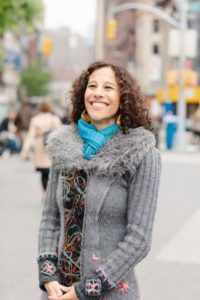 ILJ Colloquium Fall 2019
ILJ Colloquium Fall 2019
Infrastructure, Rights and Regulation
Convened by Benedict Kingsbury and Sally Engle Merry
Speaker: Miriam Ticktin, New School
Topic: Borders and Border Walls as Infrastructures
Location: Furman Hall 120
About Prof. Ticktin
Miriam Ticktin is Associate Professor of Anthropology at The New School for Social Research. She was Chair of Anthropology from 2016-2018, Co-Director of the Zolberg Institute on Migration and Mobility between 2013-2016 and Director of Gender Studies from 2012-2013. She received her PhD in Anthropology at Stanford University and the Ecole des Hautes Etudes en Sciences Sociales in Paris, France, and an MA in English Literature from Oxford as a Rhodes Scholar. Before coming to the New School, Miriam was an Assistant Professor in Women’s Studies and Anthropology at the University of Michigan, and also held a postdoctoral position in the Society of Fellows at Columbia University.
Miriam works at the intersections of the anthropology of medicine and science, law, and transnational and postcolonial feminist theory. Her research has focused in the broadest sense on what it means to make political claims in the name of a universal humanity: she has been interested in what these claims tell us about universalisms and difference, about who can be a political subject, on what basis people are included and excluded from communities, and how inequalities get instituted or perpetuated in this process. She is the author of Casualties of Care: Immigration and the Politics of Humanitarianism in France (UC Press, 2011), co-editor of In the Name of Humanity: the Government of Threat and Care (with Ilana Feldman, Duke UP 2010), and a founding co-editor of the journal Humanity: An International Journal of Human Rights, Humanitarianism and Development.
Her newest work looks at emerging political and scientific technologies mobilized in the name of suffering — expanding humanitarianism to ecological and planetary levels — and how these help to redraw the boundaries between humans and non-humans, and new forms of political inclusion and exclusion. She is currently at work on two related book projects: 1) a short book on innocence as a political concept, and how it produces an unending search for purity; 2) a book on practices of containment at the border, from border walls to spaces of quarantine, and how these are shaped by encounters between humans and non-humans, from wildlife to viruses. The premise of the book is that we cannot understand the politics of border walls without also taking into account how they intersect with and are shaped by the politics of health, environment and conservation.

